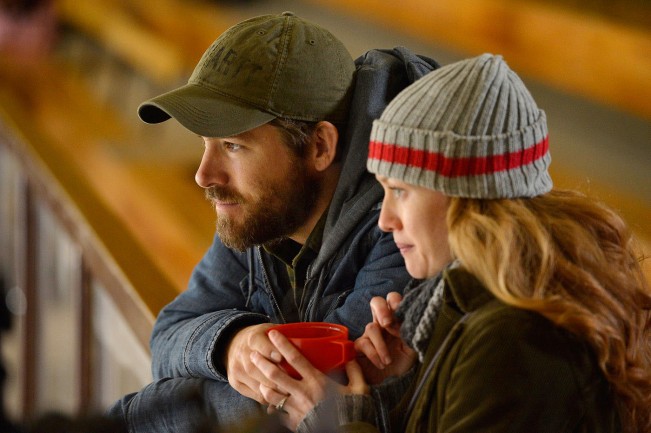By Jake Howell jake.howell@utoronto.ca
Cannes Competition Review: The Captive
 Because this is the likely the first question on many minds, here’s the good news: Atom Egoyan’s The Captive has very little in common with Denis Villeneuve’s Prisoners, 2013’s $61-million-grossing kidnapping thriller that sounded similar on the page. Nope, it’s its own film.
Because this is the likely the first question on many minds, here’s the good news: Atom Egoyan’s The Captive has very little in common with Denis Villeneuve’s Prisoners, 2013’s $61-million-grossing kidnapping thriller that sounded similar on the page. Nope, it’s its own film.
The bad news: The Captive is yet another major misstep for Egoyan, who so desperately needed a successful debut here at Cannes following his just-released, poorly-received Devil’s Knot.
Flashing across a timeline of eight years, The Captive depicts the abduction of the young Cassandra (Alexia Fast) and the efforts made by her loose cannon father Matthew (Ryan Reynolds) and bitter mother Tina (Mireille Enos) to find her (the parallels to Prisoners end here). To add a bit of intrigue to the mix, Egoyan and co-writer David Fraser play with the chronology of their plot structure, moving back and forth from the kidnapping to the present-day aftermath, where Cassandra’s parents are still looking for her. Also in the present: the twisted pedophile Mika (Kevin Durand), who over eight years has established a strange and curious relationship with the now-teenaged Cassandra, locked in his basement. Rosario Dawson and Scott Speedman play good cop, bad cop, respectively, in their hunt to end child pornography rings on the internet. Mika, obsessed with hidden cameras, films his subjects to entertain subscribers to his sick “reality” show.
The blurring of truth and fiction is a fairly standard theme throughout the director’s filmography, and much of Egoyan’s career is recalled in The Captive (even his recent attachment to Mozart finds a cinematic home here). In terms of narrative ambiguity, though, this frostbitten script has a blizzard of silly inconsistencies, like asking Scott Speedman’s cowboy detective to incessantly and needlessly question the motives of Matthew. Is Matthew lying, or was his daughter actually stolen from him? This is just one of the many failed attempts to artificially heighten The Captive’s tension, and when Matthew eventually pops Speedman’s character in the face for being so ceaselessly obnoxious, it’s as if the script is apologizing for allowing this character to waste so much screen time. Thematically, the title of the film doesn’t just apply to abducted Cassandra—these characters are all held captive by something, tangible or otherwise—but this idea was better explored in Prisoners, and here it is far too on the nose to work again.
It’s clear the film wants to obfuscate the truth (is it the past, or is it the present?) and fool us off the scent (how will these dozen loose ends be tied up?) but these mechanisms are unintentionally more confusing than they should be, because they rarely make a lick of sense. Obsessed with peppering in small details that aren’t at all necessary, the script features a myriad of minor characters, like an assistant detective who has the almost supernatural ability to piece together intricate images in his head (we see this for a single scene). Clichés abound: everyone has a dark past or a criminal record, background notes that are hinted at with expository dialogue that is the epitome of unsubtle.
The Captive isn’t dreadful. Reynolds can and does hold his own here—he’s the best thing about this film—and Enos is equally strong. A car chase late in the film is also well-choreographed, and Egoyan’s go-to cinematographer Paul Sarossy captures the snowy Niagara Falls backdrop effectively. Tapping into many of his previous tropes—voyeurism being one of the most prevalent in this film—Egoyan could have had a successful marriage of thriller intrigue and artistic complexity, but on the icy highways of this story, the screenwriting fishtails out of control and never regains it.















